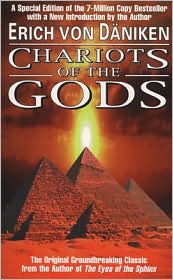Hive: The Story of the Honeybee and Us
Ever since men first hunted for honeycomb in rocks and daubed pictures of it on cave walls, the honeybee has been seen as one of the wonders of nature: social, industrious, beautiful, terrifying. No other creature has inspired in humans an identification so passionate, persistent, or fantastical.\ The Hive recounts the astonishing tale of all the weird and wonderful things that humans believed about bees and their "society" over the ages. It ranges from the honey delta of ancient Egypt to the...
Search in google:
Ever since men first hunted for honeycomb in rocks and daubed pictures of it on cave walls, the honeybee has been seen as one of the wonders of nature: social, industrious, beautiful, terrifying. No other creature has inspired in humans an identification so passionate, persistent, or fantastical. The Hive recounts the astonishing tale of all the weird and wonderful things that humans believed about bees and their "society" over the ages. It ranges from the honey delta of ancient Egypt to the Tupelo forests of modern Florida, taking in a cast of characters, including Alexander the Great and Napoleon, Sherlock Holmes and Muhammed Ali. The history of humans and honeybees is also a history of ideas, taking us through the evolution of science, religion, and politics, and a social history that explores the bee's impact on food and human ritual. In this beautifully written book, Bee Wilson shows how humans will always view the hive as a miniature universe with order and purpose, and look to it to make sense of our own. Publishers Weekly Food writer and Sunday Telegraph columnist Bee Wilson, who says she acquired her name long before her fascination with the insect Apis mellifera, takes an entertaining look at the extraordinary notions humans have had through the ages about honeybees. She shows how people, lacking until recently any scientific knowledge of how bees live, communicate and produce honey, have projected onto the bee human values and morals. The organization of the hive, for example, is seen as a model of the perfect society; worker bees symbolize selfless industry and the joy of productivity. The bee has been a symbol of virtue, chastity, Christianity, the human soul, good and bad politics, and sex-even though, with the exception of the queen and a few drones, most bees have no sex life at all. After discussing these and other strange ideas, tempering the myths with the facts of modern science, Wilson delves into the evolution of bee-keeping and the history of honey's uses in medicines, beauty products and food, and she even includes a few recipes. There's too much information in too few pages, but Wilson treats her subject lucidly and humorously, and her book is fascinating. 60 b&w photos. (June 5) Copyright 2006 Reed Business Information.
Who's who in the beehive91Work172Sex593Politics1064Food and drink1405Life and death1896The beekeeper231
\ From the PublisherBritish Praise for The Hive\ "Endlessly fascinating." —-The Mail on Sunday "A brilliant examination of a natural phenomenon we all take for granted." —-Sunday Express (London) "Erudite, informative, accurate, and a delight to read." —-The Times Literary Supplement\ "Riveting…Almost any paragraph chosen at random is entertaining." —-New Statesman\ "In her delightful book, Bee Wilson traces the ideas that humans have had about the hive, and how these ideas reflect prevailing views about the body politic." —-The Economist\ "Beautifully produced and well researched...leaving readers to marvel." —-The Good Book Guide\ "Entertaining and thoroughly worthwhile." —-The Sunday Times\ \ \ \ \ \ Publishers WeeklyFood writer and Sunday Telegraph columnist Bee Wilson, who says she acquired her name long before her fascination with the insect Apis mellifera, takes an entertaining look at the extraordinary notions humans have had through the ages about honeybees. She shows how people, lacking until recently any scientific knowledge of how bees live, communicate and produce honey, have projected onto the bee human values and morals. The organization of the hive, for example, is seen as a model of the perfect society; worker bees symbolize selfless industry and the joy of productivity. The bee has been a symbol of virtue, chastity, Christianity, the human soul, good and bad politics, and sex-even though, with the exception of the queen and a few drones, most bees have no sex life at all. After discussing these and other strange ideas, tempering the myths with the facts of modern science, Wilson delves into the evolution of bee-keeping and the history of honey's uses in medicines, beauty products and food, and she even includes a few recipes. There's too much information in too few pages, but Wilson treats her subject lucidly and humorously, and her book is fascinating. 60 b&w photos. (June 5) Copyright 2006 Reed Business Information.\ \ \ School Library JournalAdult/High School-In this thorough study that is divided into such chapters as work, sex, and politics, Wilson traces the fascination with and misunderstanding of bees throughout history. Early cultures revered the insects for both their social structure and the sweet rewards of their labors. The geometric form of the hive is evidenced in the architectural designs of Gaud' and Le Corbusier. The wax provided light both literally and spiritually in the medieval Christian church. The hive has long been a symbol of social unity, and the happy worker bee is a model for labor. Honey is celebrated for its flavor, aroma, and medicinal qualities. It was even used as an embalming fluid by the ancient Babylonians and later by the Greeks. The "birds and the bees," "honey I'm home," and "honeyed words" are all referenced here. Black-and-white historical illustrations appear throughout, and a few recipes are included. Although this may be too much honey for some teen readers, it supplies solid information for popular-science enthusiasts.-Brigeen Radoicich, Fresno County Office of Education, CA Copyright 2006 Reed Business Information.\ \ \ \ \ Kirkus ReviewsBritish food journalist Wilson investigates humans' relationship with the honeybee. Honey is one of life's luxuries and, for the author, one of the great natural foods: "as varied and splendid as olive oil, as consoling as chocolate, as flavorsome as garlic, as health-giving as fruit, as wholesome as bread." It also provides Wilson, a research fellow in the history of ideas at Cambridge University, with much food for thought. She muses about our prehistoric run-ins with honey, imagining what it was like when Paleolithic humans first supplemented their severely simple fare with wild honeycombs. She especially likes to trace the emblematic connections between humans and bees through history. From ancient times, bees were admired for being wise, social, pious and industrious. Feudal apologists could point to workers admiring their king, even if they got the monarch's gender wrong. The Renaissance took the bee to heart for its selfless industry, particularly useful for driving home the message that social order came from harmonious, uncomplaining labor. Republicans liked social unity in the state as well, so the beehive symbolism worked for them, too. In addition to her intelligent survey of political iconography, Wilson presents much excellent history both social (the special significance of the hive for Freemasons, who prided themselves as builders) and religious (the Christian view that the flame of a beeswax candle represented Christ, the light of the world). She tenders gobs of goodies regarding honey's link to the mysteries of sex and, while she claims the book is no entomological work, also offers a wealth of natural science in these handsomely illustrated pages. Precise, quick-wittedand poetic.\ \








